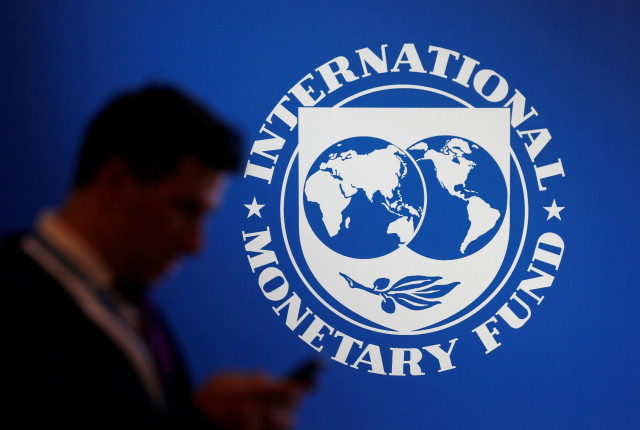IMF puts reputation at risk while approving $7b loan
Acknowledges risk of its loan programme going off track

A new report of the International Monetary Fund (IMF) states that the lender has risked its reputation by extending a $7 billion bailout package to Pakistan, as any decision about whether to lend or not to lend carries risks due to chances of the programme going off track.
The report disclosed that Pakistan's overall risk of sovereign stress was high, reflecting a high level of vulnerability from elevated debt and gross financing needs and low reserves. But for now the IMF has declared Pakistan's debt as sustainable.
It emerged from the IMF staff report that the lender had to face hard choices and put its reputation at stake by making decision on giving the $7 billion loan despite substantial risks.
"Reputational risks would arise if the fund were perceived as treating Pakistan differently from other members that ostensibly enjoy less support," said the IMF.
"Alternatively, not proceeding with a new programme also raises reputational risks as the new authorities (coalition government), or other members, may accuse the Fund of not being even handed, especially following the successful standby arrangement," revealed the report.
There has been a deep-rooted perception in Pakistan and across the world that the IMF sees Pakistan with lenses of the US State Department, like that of Egypt and Ukraine. Many also believe that without debt restructuring, any new IMF programme will fail and targets will be missed.
The IMF has acknowledged the risk of its programme going off track. "The Fund faces a number of major enterprise risks associated with a new programme. Notably, business risks are elevated due to the potential for the programme to go off-track as well as Pakistan's challenging security situation, which could adversely impact foreign direct investment, among others."
The report projected the net foreign direct investment (FDI) equal to just 0.3% of gross domestic product (GDP), or $1.3 billion, for the current fiscal year. The level is too low compared with the efforts being made by the Special Investment Facilitation Council.
The IMF said that its staff in Pakistan was facing "operational risks in relation to staff's in-country activities", adding that the IMF staff activities were closely coordinated in line with policies and supported by the United Nations Department for Safety and Security". It pointed out that there were exceptionally high risks to the programme – notably from high public debt and gross financing needs, low gross reserves and socio-political factors, which could jeopardise policy implementation and erode repayment capacity and debt sustainability.
It added that the overall risk of sovereign stress was high, reflecting a high level of vulnerability from the elevated debt and gross financing needs and low reserve buffers. But the programme mitigates these risks through the proposed fiscal adjustment, obtaining financial commitments from bilateral partners, and the ability of banking system to roll over domestic debt.
The IMF also assessed Pakistan's medium-term debt sustainability risks "as high", which included uneven programme implementation, political risks, and access to adequate multilateral and bilateral financing in view of the high gross financing needs.
However, it said that the public debt continued to be assessed as sustainable in the baseline scenario, underpinned by the steadfast implementation of IMF programme policies, with gradual fiscal consolidation continuing in this fiscal year and beyond, and the gradual resumption of growth in the coming years.
Timely disbursements of committed bilateral and multilateral support were critical in the period ahead, said the IMF.
Pakistan's external debt is predominantly owed to bilateral and multilateral creditors. The IMF said that the high share of short-term debt posed risks to debt sustainability and would require careful management. Domestic debt is mostly owed to local banks, increasing the sovereign-bank nexus. The IMF projected the public debt to decline gradually over the medium term. "The margin of error for policy slippages and delay in urgently needed structural reforms remains very small," it cautioned.
However, the lender said that the $7 billion programme was fully financed "with firm commitments for the first 12 months and good prospects thereafter".
For this fiscal year, according to the report, the financing commitments include $16.8 billion of rollovers for short-term financing and $2.1 billion of additional commitments, including from China, Saudi Arabia, the Asian Development Bank (ADB) and the Islamic Development Bank.
The government has received firm commitments from key bilateral partners that they will at least maintain their existing exposure over the three-year programme period, including by continuing to roll over short-term liabilities, said the IMF.




















COMMENTS (2)
Comments are moderated and generally will be posted if they are on-topic and not abusive.
For more information, please see our Comments FAQ